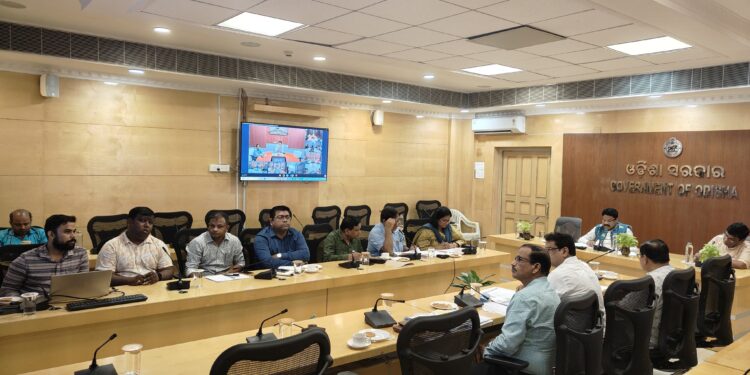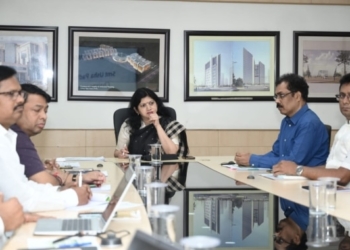In a decisive move to combat vector-borne diseases, Odisha’s Health and Family Welfare Minister, Dr. Mukesh Mahaling, conducted a virtual review meeting from Lok Seva Bhawan today.
Joined by district collectors, commissioners, and Chief District Medical Officers (CDMOs) from various districts, the minister assessed the state’s efforts to curb malaria and dengue. Emphasising the government’s commitment to public health, Dr. Mahaling directed officials to intensify collaborative efforts to tackle these diseases effectively.
The minister reviewed key initiatives, including the distribution of Long-Lasting Insecticidal Nets (LLINs) and Indoor Residual Spraying (IRS). He urged district collectors in malaria-prone areas to prioritise targeted interventions. With the pre-monsoon and monsoon seasons approaching, Dr. Mahaling stressed the need for proactive preparedness and seamless execution of preventive measures. He advocated for expanded screening programs, particularly in residential schools, malaria-endemic regions, and among migrant workers, to boost testing and early detection.
The central government is set to supply 1.57 crore LLINs in the coming days, and Dr. Mahaling instructed officials to ensure their effective distribution and utilisation at the grassroots level. To enhance community engagement, he emphasised mobilising self-help groups, youth clubs, and students to raise awareness about malaria and dengue prevention.
Addressing dengue-specific measures, the minister directed officials to maintain adequate platelet reserves and ensure that malaria and dengue control teams operate efficiently.
The meeting saw participation from officials across districts, including Anugul, Bhadrak, Balasore, Boudh, Cuttack, Ganjam, Gajapati, Jagatsinghpur, Khordha, Nayagarh, Nabarangpur, Kalahandi, Kandhamal, Koraput, Malkangiri, Rayagada, Mayurbhanj, and Sundargarh.
The state’s proactive approach underscores its resolve to mitigate the impact of vector-borne diseases, ensuring a healthier future for Odisha’s residents.






























